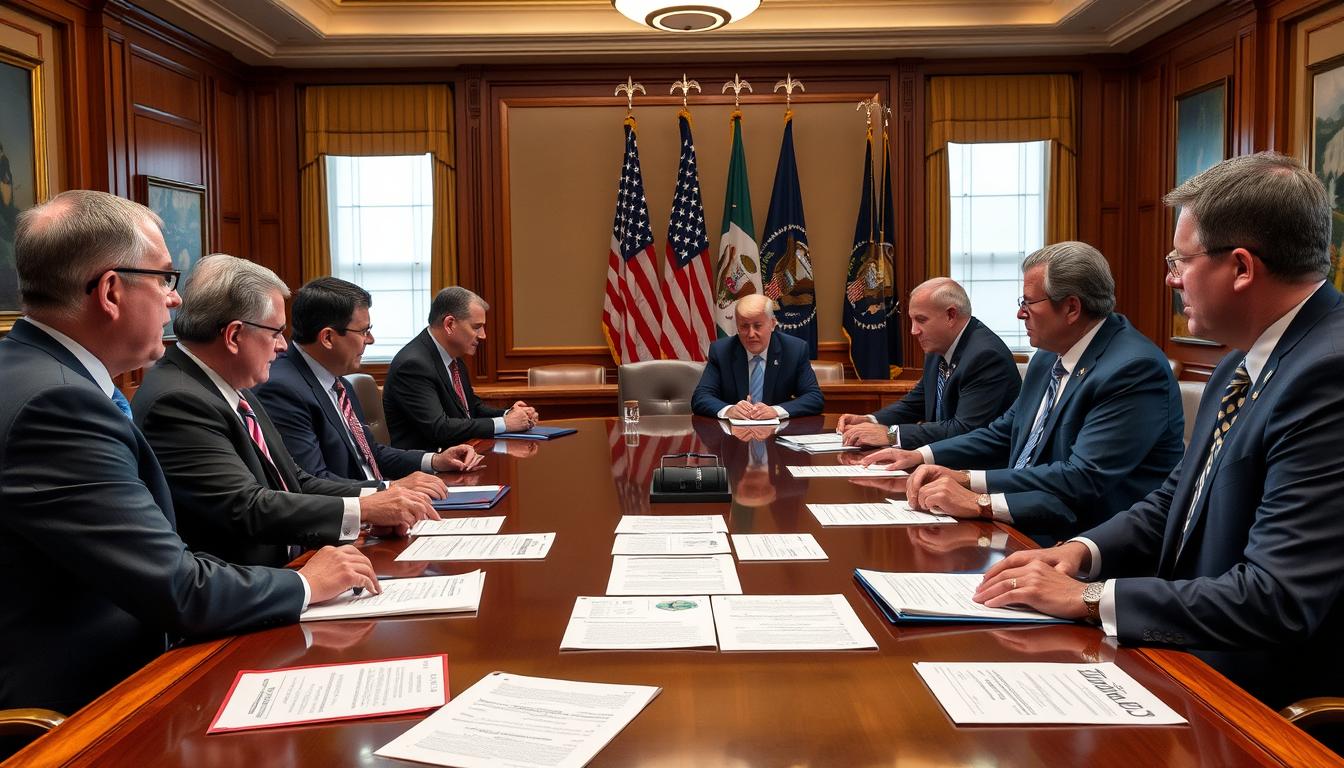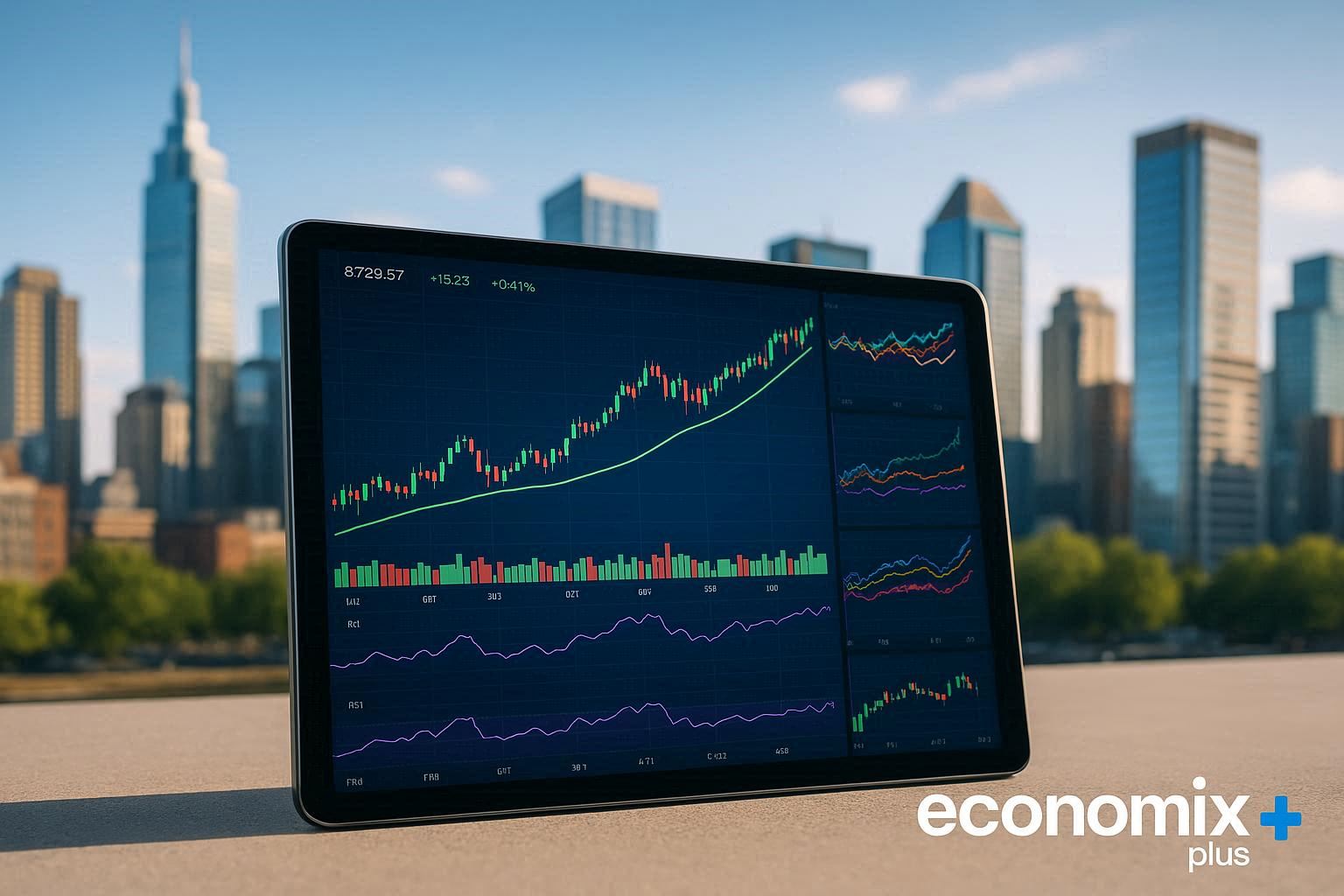In the complex theater of global politics, defense companies operate as powerful actors shaping national security policies, economic landscapes, and geopolitical power balances. These corporations don’t merely produce weapons and military equipment—they actively influence government decisions, foreign policy, and international relations through sophisticated networks of lobbying, revolving door employment practices, and strategic investments. This article examines how defense companies leverage their economic and political capital to enhance national power and project global influence.
Strategic Importance of Defense Companies in National Security
Defense companies play a pivotal role in shaping national security policies through various channels of influence. Their impact extends far beyond simply manufacturing weapons—they actively participate in defining threats, determining military priorities, and influencing strategic decisions at the highest levels of government.
Lobbying and Policy Influence
The defense sector’s political activity is dominated by industry giants who invest heavily in lobbying efforts. According to OpenSecrets data, defense companies have directed $285 million in campaign contributions and $2.5 billion in lobbying spending over the past two decades to influence defense policy. This staggering amount underscores the extent to which these corporations prioritize their interests in shaping legislation that directly affects their operations and profitability.
In 2020 alone, the five biggest spenders—Lockheed Martin, Boeing, Northrop Grumman, Raytheon Technologies, and General Dynamics—spent a combined $60 million on lobbying activities. These companies not only advocate for favorable policies but also work to ensure that their voices are heard in critical discussions regarding military budgets and procurement processes. This level of investment reflects a strategic approach to securing contracts and funding, which can have long-lasting implications for national security priorities and the allocation of resources within the defense sector.
This massive investment in political influence allows defense companies to shape policy decisions in several key ways:
- Advocating for increased defense budgets and specific weapons programs
- Influencing national security strategies to emphasize military solutions
- Shaping threat assessments to align with their product portfolios
- Promoting looser export regimes for international arms sales
- Securing favorable contract terms and procurement decisions
Research and Development Partnerships
Defense companies form strategic partnerships with government agencies, research institutions, and universities to drive innovation in military technology. These R&D collaborations serve dual purposes: they advance national security capabilities while ensuring continued revenue streams for the companies involved. By leveraging the expertise of academic researchers and the resources of government laboratories, defense firms can develop cutting-edge technologies that may not be feasible through private sector efforts alone. This synergy not only accelerates the pace of technological advancement but also fosters a culture of innovation that is critical in maintaining a competitive edge in global defense.
Moreover, these partnerships often lead to the establishment of long-term contracts that provide financial stability for both the defense contractors and their research partners. Such arrangements can result in substantial funding for projects that focus on emerging threats, thereby aligning the interests of the private sector with national security objectives. The outcomes of these collaborations frequently translate into advanced military systems and capabilities that enhance the operational effectiveness of armed forces, showcasing the essential role that these partnerships play in shaping the future of defense technology.
The Pentagon’s Defense Advanced Research Projects Agency (DARPA) regularly partners with major defense contractors to develop cutting-edge technologies. These partnerships often result in proprietary systems that create long-term dependencies, as the original manufacturer becomes the sole source for maintenance, upgrades, and related systems.
The Revolving Door Phenomenon
Perhaps the most powerful mechanism of influence is the “revolving door” between government and industry. According to OpenSecrets, 73% of the 663 lobbyists employed by defense companies in 2020 formerly worked for the federal government. This revolving door creates a symbiotic relationship where industry and government interests become increasingly aligned.
“The revolving door between the Pentagon and the defense industry not only creates conflicts of interest, but it also shapes policy priorities to favor military solutions over diplomatic or economic approaches to national security challenges.”
Former government officials bring valuable insider knowledge, personal connections, and understanding of procurement processes to defense companies. Meanwhile, the prospect of lucrative industry positions influences the decisions of current officials who may soften oversight or advocate for programs that benefit potential future employers.
Economic Impact of Defense Companies on National Power
Defense spending represents a significant portion of many national budgets, with the United States leading global military expenditure at approximately $740 billion annually. This massive investment not only builds military capabilities but also creates economic dependencies that enhance the political influence of defense companies.
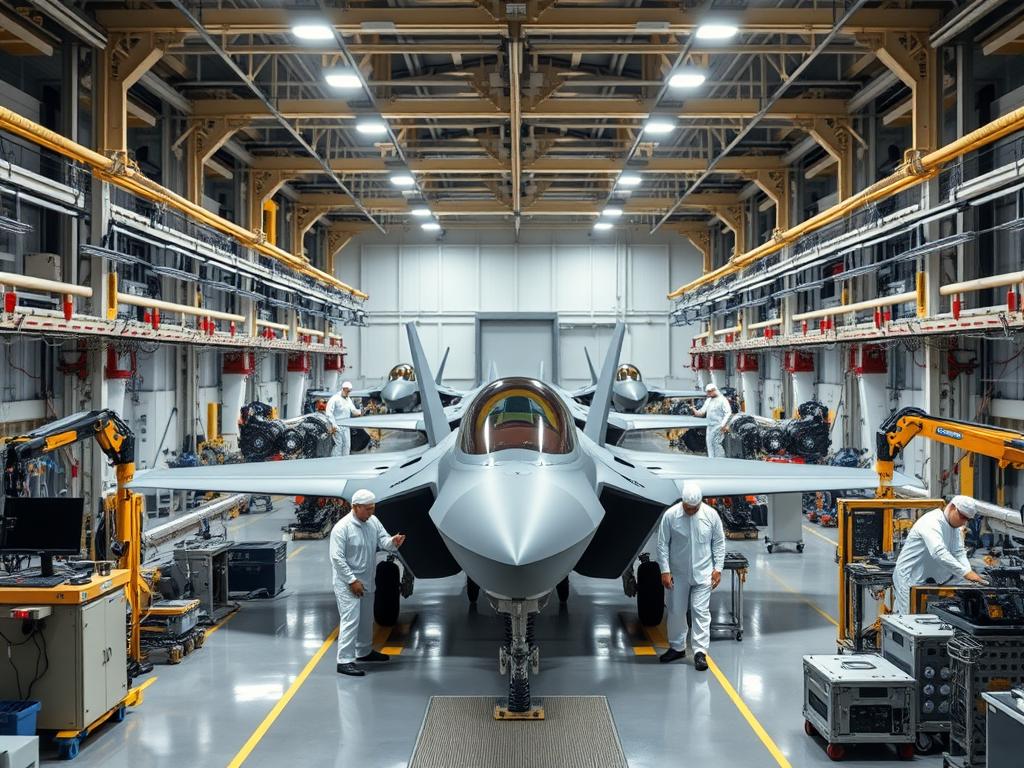
Employment and Regional Economic Dependencies
Defense companies strategically distribute their operations across multiple congressional districts, creating economic dependencies that translate into political support. Major defense programs like the F-35 fighter jet involve suppliers from nearly every state, making it politically difficult to cancel even when facing cost overruns or technical problems.
In the United States, defense contractors employ millions of workers across the country. ICBM bases in states like North Dakota, Wyoming, and Montana are directly responsible for 8-13% of their respective labor forces, with indirect economic benefits pushing those percentages even higher. This economic leverage translates directly into political support from elected officials representing these regions.
Direct Economic Benefits
- High-paying manufacturing and engineering jobs
- Tax revenue for local and state governments
- Infrastructure development in communities with defense facilities
- Technology spillover into civilian sectors
- Export revenue from international arms sales
Indirect Economic Impacts
- Support services and supply chain businesses
- Housing market stability near defense installations
- Educational institutions specializing in relevant fields
- Research and development ecosystems
- Local business growth from employee spending
Defense Spending as Economic Stimulus
While defense spending is often justified on national security grounds, it also functions as a form of industrial policy and economic stimulus. During economic downturns, defense budgets typically remain stable or even increase, providing countercyclical support to the economy. This stability in defense spending can be crucial for maintaining employment levels in sectors heavily reliant on government contracts, as many defense-related jobs are not only essential for national security but also serve as a backbone for local economies. Furthermore, the infusion of funds into defense projects can stimulate innovation and technological advancements, leading to broader economic benefits that extend beyond the military sector.
In addition to preserving jobs, increased defense spending can also lead to infrastructure improvements and the development of new technologies that have civilian applications. This dual-purpose nature of defense investment highlights its role not just in military readiness but also in fostering economic resilience. As a result, the defense sector often becomes a key player in regional economic strategies, particularly in areas where other industries may be declining or facing challenges.
However, research suggests that defense spending is not the most efficient form of government investment for job creation. According to the Costs of War Project at Brown University, while $1 million in defense spending supports 6.9 jobs, the same amount directed toward clean energy and infrastructure supports 9.8 jobs, toward health care supports 14.3 jobs, and toward education 15.2 jobs.
Financial Sector Integration
The financialization of the global economy has enhanced the reach and influence of defense companies. Private equity firms, venture capital, and investment banks increasingly direct capital toward defense and security technologies, creating powerful financial interests aligned with continued military spending. This trend reflects a broader shift where financial markets are not only funding traditional defense contractors but also nurturing startups focused on innovative security solutions, thereby diversifying the types of technologies that receive backing.
Moreover, the involvement of financial institutions in defense projects often prioritizes profitability over public welfare, leading to significant investments in areas that may not align with pressing social needs. As a result, the intertwining of finance and defense not only shapes the landscape of military capabilities but also impacts broader economic policies, reinforcing a cycle where military expenditures are favored over investments in civilian infrastructure and social programs.
Firms like Veritas Capital, Arlington Capital Partners, and Paladin Capital specialize in defense investments, while major weapons manufacturers have established their own corporate venture capital arms, like Boeing’s HorizonX. This integration with finance capital ensures a steady flow of investment into militarized technologies while steering capital away from civilian infrastructure and social needs.
Defense Companies and Geopolitical Power Balances
The international arms trade represents a critical dimension of global power projection. By selling advanced weapons systems to allies and partners, nations extend their influence, strengthen strategic relationships, and shape regional security dynamics. Defense companies are central to this process, both benefiting from and enabling these geopolitical strategies.
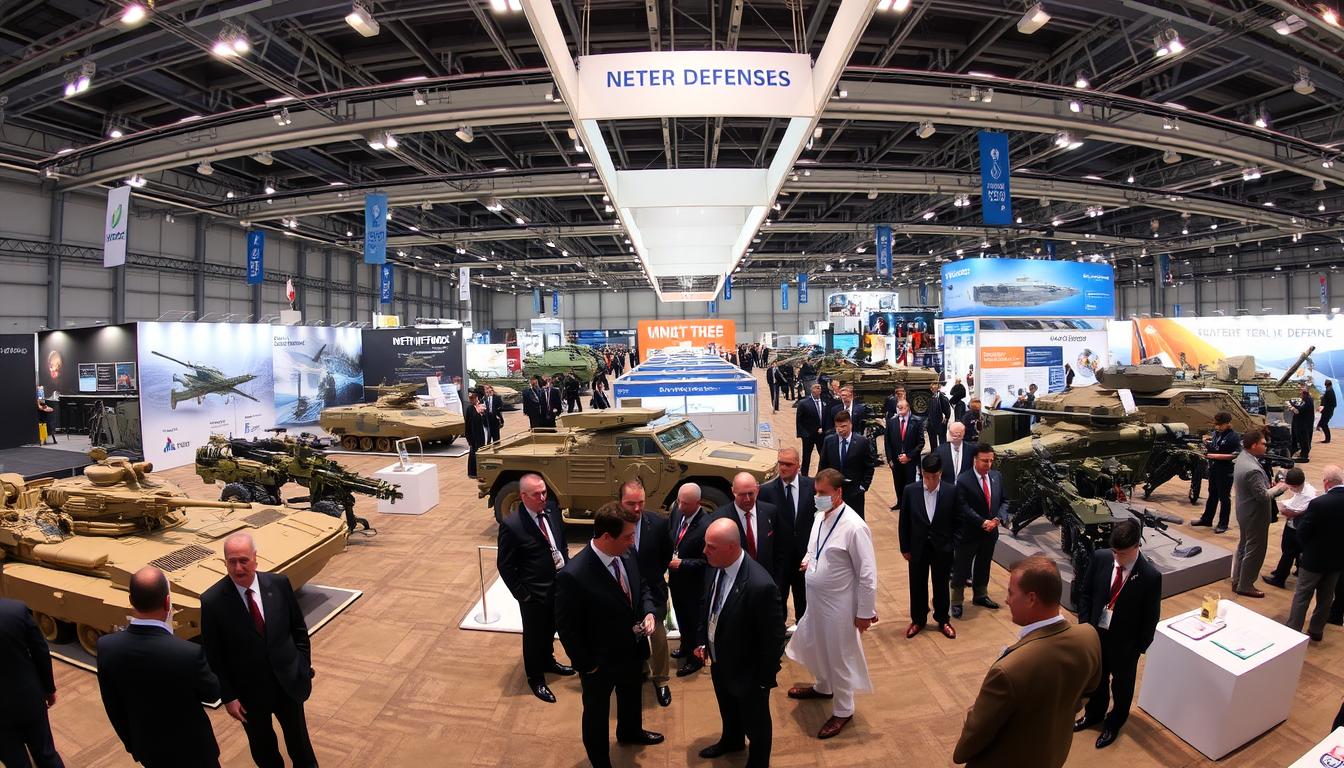
Arms Exports as Foreign Policy Tools
The United States dominates the global arms market, with American companies securing $30.6 billion in foreign arms sales from 2016 through 2018 alone. These sales are often framed as strategic tools that provide leverage over recipient countries, though evidence suggests this leverage is frequently overstated.
Major recipients of U.S. arms include Australia ($2.8 billion), Japan ($2.7 billion), the United Arab Emirates ($2.5 billion), and Taiwan ($2.2 billion). These sales strengthen military alliances, promote interoperability with U.S. forces, and create long-term dependencies on American technology, spare parts, and training.
| Country | Total Arms Sales (2016-2018) | Foreign Influence Spending |
| Australia | $2.82 billion | $31.12 million |
| Japan | $2.70 billion | $119.33 million |
| United Arab Emirates | $2.50 billion | $50.80 million |
| Taiwan | $2.24 billion | $13.28 million |
| Egypt | $1.85 billion | $10.06 million |
Competing Power Blocs and Defense Ecosystems
The global arms market increasingly reflects competing spheres of influence, with Russian and Chinese defense companies challenging American dominance in certain regions. Russia remains the second-largest arms exporter globally, with state-controlled Rostec supplying weapons to countries like India, Algeria, and Vietnam.
China’s rapid military modernization has transformed its defense industry from an importer to an exporter, with companies like AVIC and NORINCO offering more affordable alternatives to Western systems, particularly in Africa, Southeast Asia, and the Middle East. These competing defense ecosystems reinforce broader geopolitical alignments and rivalries.
Foreign Influence Operations
Both defense companies and recipient countries engage in sophisticated influence operations to shape arms export policies. Foreign governments spend considerable sums lobbying U.S. officials, with Saudi Arabia reporting $108 million in influence operations since 2016, making it the sixth-largest foreign spender on U.S. lobbying.
Meanwhile, U.S. defense companies hire lobbying firms that simultaneously represent foreign governments seeking to purchase American weapons. This creates a powerful alignment of interests pushing for expanded arms sales, regardless of human rights concerns or regional stability implications.
“Defense industry profits do not simply disappear into the pockets of executives and shareholders. They are deployed strategically to build support for a highly militarized form of U.S. foreign policy.”
This complex web of relationships between defense companies, their home governments, and foreign clients creates a self-reinforcing system that prioritizes weapons sales over other foreign policy considerations, often at the expense of diplomatic solutions to international conflicts.
Military Technology Innovation and National Power
Technological superiority in defense systems has long been a cornerstone of national power. Defense companies drive innovation in military technology, often with significant government funding, creating capabilities that shape strategic balances and military doctrines.
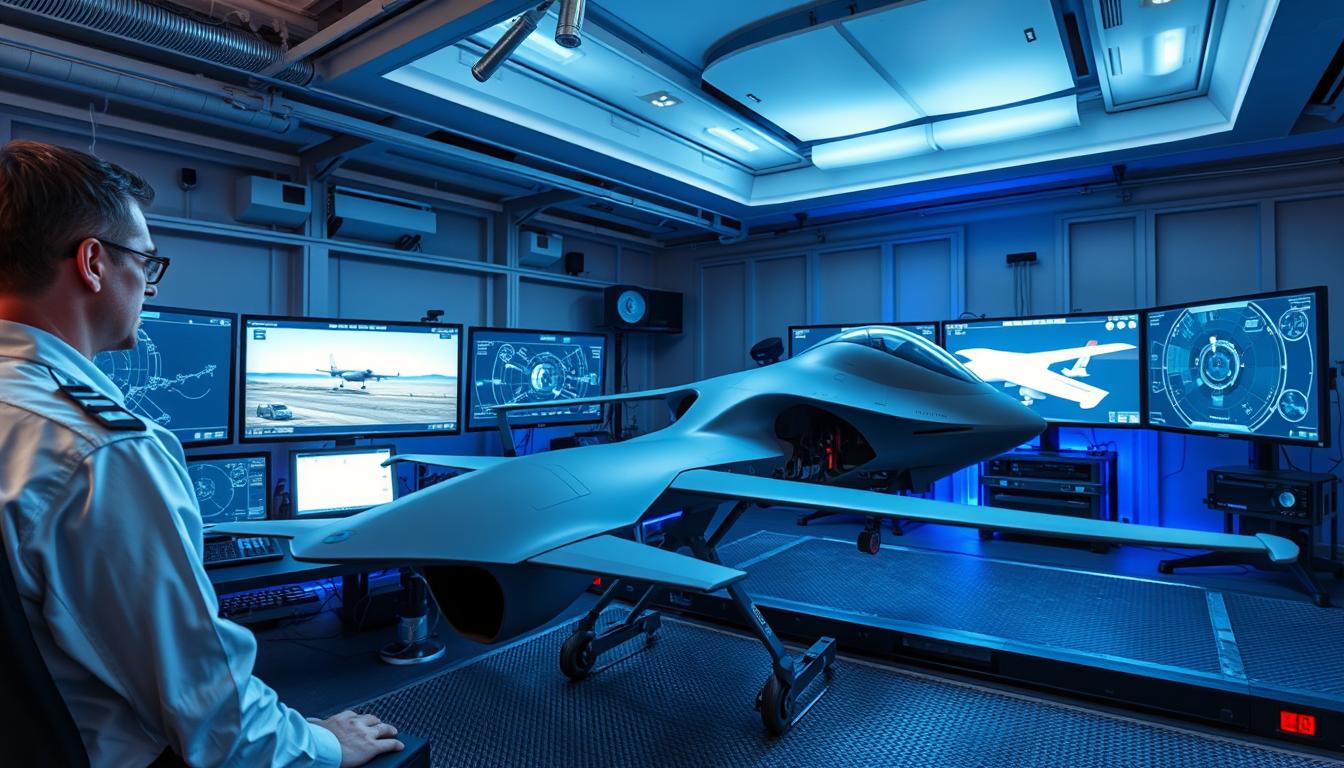
Leading-Edge Technologies and Strategic Advantage
Defense companies invest heavily in developing technologies that provide strategic advantages, often with significant government R&D funding. These innovations shape military capabilities and influence strategic thinking about future conflicts.
Hypersonic Weapons
Lockheed Martin and Raytheon lead U.S. development of hypersonic missiles capable of traveling at Mach 5+ speeds, challenging existing missile defense systems. Russia’s Rostec has already deployed the Avangard hypersonic glide vehicle, while China’s CASC is rapidly advancing similar capabilities.
Autonomous Systems
General Atomics and Boeing are pioneering increasingly autonomous drones and unmanned vehicles, while Russia’s Kalashnikov Group has developed autonomous combat modules. These systems are transforming military operations by reducing human exposure and enabling new tactical approaches.
Cyber Capabilities
Raytheon, Northrop Grumman, and Lockheed Martin have expanded into offensive and defensive cyber operations, developing tools for network penetration, surveillance, and infrastructure protection that extend military power into the digital domain.
Public-Private Innovation Ecosystems
The relationship between defense companies and government research institutions creates powerful innovation ecosystems that drive technological advancement. In the United States, the Defense Advanced Research Projects Agency (DARPA) partners with private contractors to develop cutting-edge technologies, many of which later find civilian applications.
Similar arrangements exist in other major powers, with Russia’s defense research institutes working closely with state-owned enterprises and China’s military-civil fusion strategy explicitly integrating civilian and military technology development. These ecosystems concentrate resources on military applications, potentially at the expense of civilian needs.
Comparative Approaches: U.S., Russia, and China
Different national approaches to defense innovation reflect broader strategic cultures and economic systems. The U.S. model relies heavily on private companies competing for government contracts, while Russia maintains greater state control over its defense industry through entities like Rostec. China’s approach combines state-owned enterprises with an increasingly dynamic private sector under the umbrella of military-civil fusion.
| Country | Leading Companies | Innovation Model | Key Technologies |
| United States | Lockheed Martin, Raytheon, Northrop Grumman | Private contractors with government funding | AI systems, quantum computing, hypersonics |
| Russia | Rostec, United Aircraft Corporation, Almaz-Antey | State-controlled enterprises | Hypersonic missiles, electronic warfare, air defense |
| China | AVIC, NORINCO, CASC | Military-civil fusion | Drone swarms, anti-satellite weapons, AI |
These different approaches to military innovation reflect and reinforce broader patterns of national power, with implications for global security dynamics and the future of warfare. As emerging technologies like artificial intelligence, quantum computing, and biotechnology mature, defense companies will play a crucial role in determining how these capabilities shape international relations.
Ethical Challenges and Controversies
The defense industry’s influence on national and global power raises significant ethical questions about accountability, transparency, and the prioritization of military solutions over other approaches to security and human development.

Arms Sales to Conflict Zones
One of the most controversial aspects of the defense industry is the sale of weapons to countries involved in active conflicts or with poor human rights records. Despite public protestations from Western governments, arms continue to flow to regions experiencing significant violence.
For example, despite concerns about civilian casualties in Yemen, Saudi Arabia and the UAE have continued to receive billions in weapons from American and European defense companies. The economic and political influence of these companies often overrides humanitarian concerns in export decisions.
“The argument that weapons exports are a strategic military choice that allows the exporter to influence outcomes without deploying their own troops is farcical.”
Conflicts of Interest in Policy Making
The close relationship between defense companies and government officials creates significant conflicts of interest. A recent investigation revealed that at least 47 members of Congress and their spouses own between $2 million and $6.7 million worth of stocks in companies that rank among the top 30 global defense contractors.
These financial interests, combined with campaign contributions and the revolving door between industry and government, create a system where corporate influence can trump national strategy in military decisions. This raises fundamental questions about democratic accountability in defense policy.
- Defense companies provide essential national security capabilities
- Private sector competition drives innovation and efficiency
- Arms exports strengthen alliances and regional stability
- Defense spending creates jobs and economic growth
- Technology spillover benefits civilian sectors
Arguments Supporting Current System
- Corporate profit motives may distort security priorities
- Revolving door creates conflicts of interest
- Arms sales can exacerbate regional conflicts
- Military spending diverts resources from social needs
- Lack of transparency undermines democratic oversight
Ethical Concerns
Artificial Intelligence and Autonomous Weapons
The rapid development of artificial intelligence and autonomous weapons systems raises new ethical questions about the role of human decision-making in warfare. Defense companies are at the forefront of developing these technologies, often ahead of regulatory frameworks or international agreements.
The potential deployment of fully autonomous lethal weapons systems has sparked debates about accountability, the risk of algorithmic bias, and the fundamental question of whether machines should make life-or-death decisions in combat. These ethical concerns intersect with commercial interests as companies compete to develop and sell increasingly autonomous systems.
Transparency and Accountability
The defense industry operates with significantly less transparency than many other sectors, often citing national security concerns. This lack of transparency extends to contract details, lobbying activities, and the true costs of weapons programs.
Reform advocates argue that greater transparency would enable more effective oversight, reduce waste, and ensure that defense decisions are made based on genuine security needs rather than corporate interests. However, implementing such reforms faces significant resistance from both industry and its political allies.
Future Trends Reshaping Defense Industry Influence
Emerging technologies and changing geopolitical dynamics are transforming how defense companies influence national and global power. These trends will likely reshape the relationship between the defense industry, governments, and society in the coming decades.

Artificial Intelligence and Autonomous Systems
The integration of artificial intelligence into military systems represents perhaps the most significant transformation in warfare since nuclear weapons. Defense companies are investing heavily in AI capabilities that promise to revolutionize everything from intelligence analysis to autonomous weapons platforms.
This shift toward AI-enabled systems is blurring the lines between traditional defense contractors and technology companies. Firms like Palantir, Anduril, and Shield AI are challenging established players, while tech giants like Microsoft and Amazon are securing major defense contracts. This convergence is creating new centers of influence in defense policy.
Space Militarization
As space becomes increasingly contested, defense companies are expanding their focus to include satellite systems, anti-satellite weapons, and space-based sensors. The establishment of the U.S. Space Force and similar initiatives in other countries has created new opportunities for corporate influence in this emerging domain.
Companies like Northrop Grumman, Boeing, and SpaceX are positioning themselves as leaders in military space capabilities, potentially reshaping how nations project power beyond Earth’s atmosphere. This trend raises questions about the militarization of space and the adequacy of existing international agreements.
Cyber Warfare and Digital Influence
The growing importance of cyber capabilities in national security is expanding the definition of the defense industry to include cybersecurity firms, data analytics companies, and digital influence operations. This shift is creating new avenues for corporate influence in security policy.
Defense contractors are acquiring cybersecurity companies and developing offensive cyber capabilities, positioning themselves as comprehensive security providers rather than just weapons manufacturers. This evolution reflects the changing nature of warfare and creates new dependencies between governments and private sector expertise.

Climate Security and Resource Competition
As climate change reshapes global security challenges, defense companies are adapting their strategies to address emerging threats like resource scarcity, climate migration, and disaster response. This shift may create new opportunities for corporate influence in environmental security policy.
Some defense contractors are diversifying into renewable energy, water purification, and disaster response technologies, positioning themselves as solutions providers for climate-related security challenges. This evolution could either reinforce or transform traditional patterns of defense industry influence.
Potential Reforms and Alternative Models
Growing awareness of the defense industry’s influence has sparked discussions about potential reforms to ensure that security policies serve the public interest rather than corporate profits. These range from incremental changes to more fundamental restructuring of the defense sector.
Incremental Reforms
- Stricter conflict of interest regulations for officials
- Enhanced transparency in defense contracting
- Longer cooling-off periods for revolving door movements
- Campaign finance reform to limit corporate influence
- Stronger congressional oversight of arms exports
Structural Alternatives
- Public ownership of critical defense capabilities
- International arms trade treaties with enforcement mechanisms
- Diversification of defense companies into civilian sectors
- Regional security arrangements to reduce arms competition
- Redirecting R&D funding toward human security needs
These reform proposals face significant political obstacles, given the entrenched power of the defense industry. However, growing public awareness of these issues and changing security paradigms may create new opportunities for reimagining the relationship between defense companies and national power.
Conclusion: Balancing Innovation and Democratic Oversight
Defense companies undeniably play a crucial role in national security and global power dynamics. Their technological innovations, economic impact, and strategic relationships shape how nations project power and respond to threats. However, the outsized influence of these companies on policy decisions raises fundamental questions about democratic accountability and the prioritization of military approaches to security challenges.
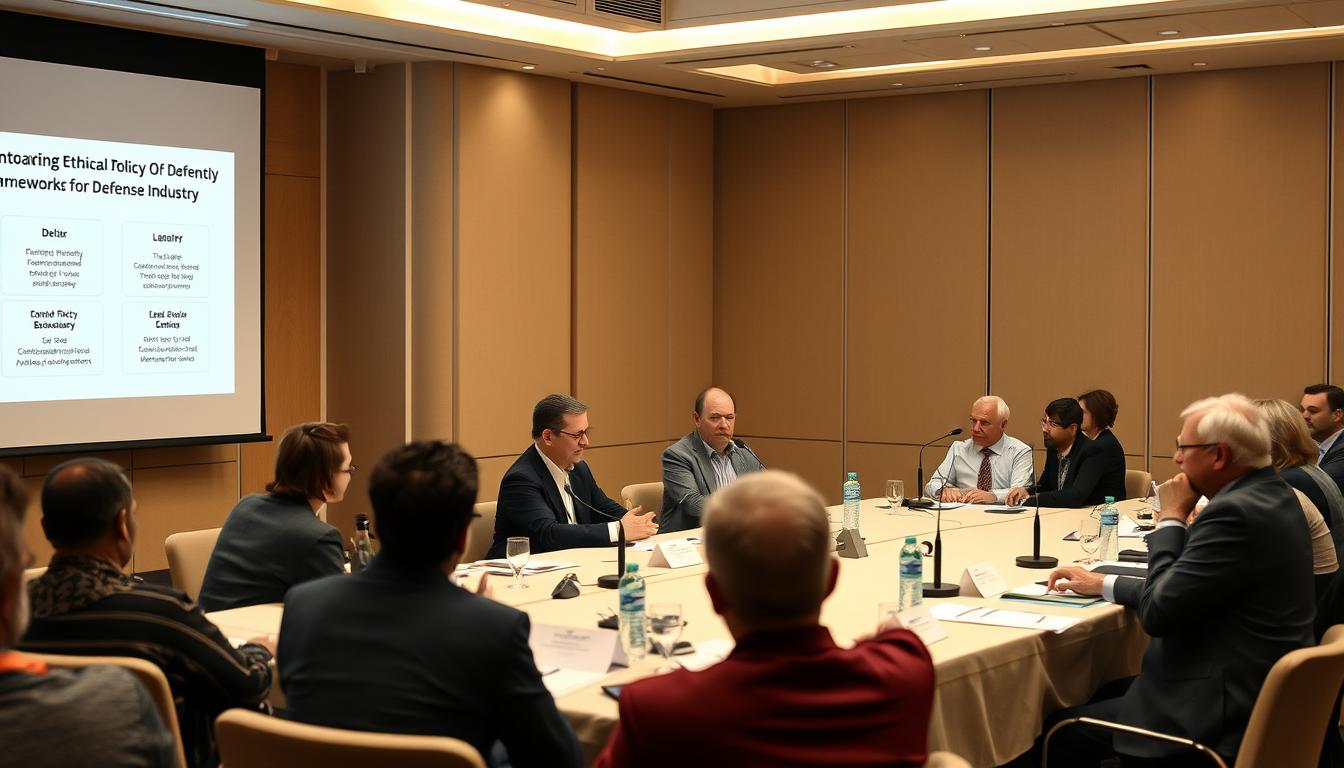
The complex relationship between defense companies and national power requires a nuanced approach that recognizes both the legitimate security needs these firms address and the potential distortions created by profit motives and political influence. Moving forward, nations must develop more robust mechanisms for democratic oversight, transparency, and ethical decision-making in defense policy.
By understanding how defense companies influence national and global power, citizens and policymakers can work toward security approaches that balance technological innovation with human needs, military capabilities with diplomatic solutions, and corporate interests with the public good. The future of global security depends on getting this balance right.
Stay Informed on Defense Industry Developments
Subscribe to our newsletter for regular updates on defense companies, national security policies, and global power dynamics. Receive expert analysis and exclusive insights delivered directly to your inbox.
